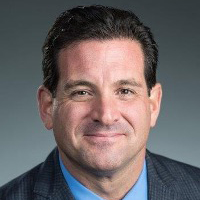CPAs are great with numbers and assisting clients maximize tax savings for the year. However, due to time constraints and different areas of focus, CPAs may not have the specific expertise to create their own lifelong financial plan, let alone the time to do so! In this article, we’ll supply you with a broad overview of the key components of a financial plan. At the end, you can ask yourself – do I have all of my financial bases covered? You might, but it’s hard to be one hundred percent sure without an objective third to analyze your situation. But before we get there, we have to understand the basic fundamentals of a lifelong financial plan.
Many people, CPAs included, have a general idea of the goals they want to achieve, but they don’t have a strict timeline as to when each one of those goals should be accomplished. Without a timeline, it’s increasingly difficult to arrange your budget, savings, and investment portfolio in a manner that will guide you to each path with a higher rate of success.
Let’s examine one potential timeframe:
A professional CPA couple in their late 20s with a newborn baby:
Build Emergency Fund
Purchase a Family-Friendly Car
Buy a House
Start Your Own CPA Practice
Pay for Children's College
Travel the World
Buy a Vacation Home
Pay for Child's Wedding
Sell Your CPA Practice
Retire
Naturally, your situation could look drastically different, depending on your age, family status, values, and goals. Additionally, new goals can appear, or other goals go away; our plans should be flexible, not set in stone, and account for a variety of scenarios.
Determine Your Investment Strategy
Now that you have a timeline, you can begin adjusting your budget and constructing an investment plan that will help you achieve those goals in a safe manner. Since each goal has its own timeline, you’ll want different kinds of investments to reach those goals.
For example, if you plan on buying a new car in two years, purchasing risky, high-growth stocks may help you buy that car on time, but it can also backfire. If a market downturn occurs right when you need your money, you may find yourself having to delay the purchase of your car until the markets recover.
Investment Portfolios Based on Goals
Short-Term: Buy a Car in 2 Years
Long-Term: Retire in 30 Years
For Educational & Visual Purposes Only: Your Results Will Differ
If you’re young, retirement is much further away, so you can afford to purchase aggressive yet volatile stocks because you’re much less likely to need those funds in case of a market crash. For example, if you are heavily invested in stocks, and in year ten of your thirty-year savings journey, the markets crash. You still have twenty years to recover, and in fact, you might even want to purchase more stocks while prices are low. However, as you approach retirement, you should consider reducing the proportion of stocks in your portfolio and focus on conservative, safer investments to secure your gains, such as bonds or annuities.
You should also think about what kind of investment account you’re using for each goal. A retirement account such as a 401(K) or IRA is just that – a retirement account. Early withdrawals could lead to penalties and unexpected tax consequences. Standard bank and brokerage accounts are likely more suitable for shorter-term goals. Specific goals may even have their own investment accounts available, such as a 529 College Savings Plan for college expenses and Health Savings Accounts for medical expenses.
Create a Tax Plan
As a CPA, you’re probably well-versed in tax laws. However, a comprehensive financial plan should look at your lifelong tax situation, not just maximizing yearly deductions. Your investment plan is inherently intertwined with your tax plan, as the type of investment account will directly impact your tax liability.
By carefully balancing traditional contributions and post-tax contributions, you can reduce your tax bill now (potentially even keeping you in a lower tax bracket) while also providing greater tax diversification in retirement. This allows you to withdraw just as much as you need from each account without bumping up a tax bracket—or even entirely avoiding a tax bill.
Without carefully analyzing your investments and how they pertain to your lifelong tax burden, you may end up giving the IRS more than necessary and potentially reducing your investment returns by hundreds of thousands of dollars, if not more.
Purchase Insurance
As a CPA, you understand the importance of financial planning, but insurance can sometimes seem like a drag on your budget. Nonetheless, it’s a critical component of a comprehensive financial plan. Unfortunately, the chances are that an unexpected financial burden will appear at least once in your lifetime. For example, today’s youth face a 20% chance of becoming disabled before retirement. This could lead to a significant loss of income, workplace retirement plans, and other benefits. An insurance policy helps transfer that burden to the insurance company, protecting your savings from being depleted prematurely.
Life insurance, in particular, can help replace lost income if the unthinkable happens. General guidelines suggest having a policy that covers 10-15 times your annual salary, plus enough to pay off debts and future major expenses, such as college tuition.
Unfortunately, Americans are severely underinsured, with fewer than fifty percent of millennials possessing a life insurance policy. For many, the issue isn’t financial – it’s because the process can be overwhelming and confusing. The average life insurance policy is full of convoluted terms and intricate conditions, and if you’re not careful, you could end up purchasing coverage you don’t fully need or understand. Before purchasing a policy, it’s highly recommended to sit down with an objective third party to analyze your precise needs to help ensure you don’t overpay or put your family’s financial future at risk.
Create a Retirement Plan
For many CPAs, retirement may look different from the traditional notion. You may choose to gradually reduce your workload, maintain a small client base, or offer consulting services. Alternatively, you may just want a clean break from professional life to pursue personal interests, travel, or simply rest and enjoy life. You certainly deserve it!
Regardless of your retirement intentions, your financial plan should align with your goals while remaining realistic and flexible. CPAs who anticipate maintaining some level of professional engagement in retirement might allocate resources differently than those planning a full retirement. For instance, investing in the practice’s growth and transition plan might be as important as traditional retirement savings.
After projecting retirement expenses and income sources, including practice sale proceeds or ongoing revenue, the next step is to develop a withdrawal strategy. This involves determining optimal withdrawal amounts and timing from various accounts (e.g., 401(k), IRA, taxable accounts) to minimize tax impact. As retirement approaches, it will become much easier to determine your optimal withdrawal strategy.
A comprehensive retirement plan for CPAs should also address five key retirement risks:
- Inflation: Eroding purchasing power over time
- Longevity: Outliving retirement savings
- Market Volatility: Impacting investment returns
- Taxes: Changing tax landscape affecting retirement income
- Premature Death: Protecting spouse and dependents
Retirement planning for CPAs with their own practices can be especially complicated due to the integration of your business and personal financial plans.
Write Up an Estate Plan
For CPAs, estate planning extends beyond the distribution of your assets upon your passing; it encompasses the entire legacy of your personal and professional life, and it’s absolutely vital at every stage of your life. It typically includes a will, powers of attorney, healthcare proxy, and potentially trusts, alongside a business succession plan detailing the transition of the CPA practice. For those with young families, designating guardians should be the primary concern to prevent complications with the foster care system.
Estate planning also offers opportunities for tax optimization, an area where CPAs can leverage their expertise. Strategies may include structuring the practice for efficient transfer or sale, utilizing trusts to minimize estate taxes, and incorporating charitable giving. With the pending expiration of the Tax Cuts and Jobs Act at the end of 2025, be prepared for reductions in estate tax thresholds. In 2024, the estate tax exemption stands at $13.61 million, but once TCJA sunsets, we can expect a reduction to about $7.5 million.
If your estate isn’t worth that much now, could it be by the end of 2025? If so, it’s important to start restructuring your business and transferring parts of your wealth to different structures. Consider setting up a trust or converting your business into a Family LLC or Family Limited Partnership to protect your assets and optimize your estate for tax purposes.
In Conclusion
The various elements of your financial strategy are interconnected, each influencing the others and contributing to your overall financial well-being. Your investment approach affects your tax circumstances, as different investment accounts have distinct tax consequences. Conversely, your tax strategy impacts your investment returns since reducing tax liabilities can boost the funds available for reinvestment.
While CPAs possess extensive financial knowledge, crafting a comprehensive, lifelong financial plan that integrates both personal and professional interests often benefits from specialized expertise. The team here at CPA Retirement Solutions understands the unique challenges and opportunities facing CPAs, and we can provide valuable insights and help ensure ever component of your financial plan seamlessly fits.







